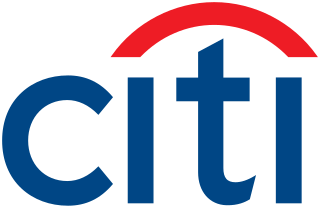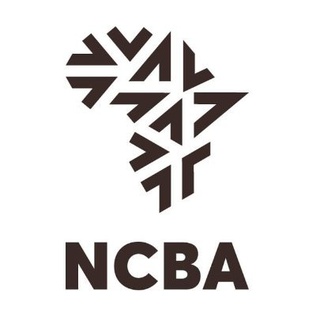
Debt is an obligation that requires one party, the debtor, to pay money borrowed or otherwise withheld from another party, the creditor. Debt may be owed by a sovereign state or country, local government, company, or an individual. Commercial debt is generally subject to contractual terms regarding the amount and timing of repayments of principal and interest. Loans, bonds, notes, and mortgages are all types of debt. In financial accounting, debt is a type of financial transaction, as distinct from equity.

A credit union is a member-owned nonprofit cooperative financial institution. They may offer financial services equivalent to those of commercial banks, such as share accounts, share draft accounts, credit cards, credit, share term certificates, and online banking. Normally, only a member of a credit union may deposit or borrow money. In several African countries, credit unions are commonly referred to as SACCOs.

The Commonwealth Bank of Australia (CBA), also known as Commonwealth Bank or simply CommBank, is an Australian multinational bank with businesses across New Zealand, Asia, the United States, and the United Kingdom. It provides a variety of financial services, including retail, business and institutional banking, funds management, superannuation, insurance, investment, and broking services. The Commonwealth Bank is the largest Australian listed company on the Australian Securities Exchange as of July 2024, with brands including Bankwest, Colonial First State Investments, ASB Bank, Commonwealth Securities (CommSec) and Commonwealth Insurance (CommInsure). Its former constituent parts were the Commonwealth Trading Bank of Australia, the Commonwealth Savings Bank of Australia, and the Commonwealth Development Bank.
A financial analyst is a professional undertaking financial analysis for external or internal clients as a core feature of the job. The role may specifically be titled securities analyst, research analyst, equity analyst, investment analyst, or ratings analyst. The job title is a broad one: In banking, and industry more generally, various other analyst-roles cover financial management and (credit) risk management, as opposed to focusing on investments and valuation.
Asset-based lending is any kind of lending secured by an asset. This means, if the loan is not repaid, the asset is taken. In this sense, a mortgage is an example of an asset-based loan. More commonly however, the phrase is used to describe lending to business and large corporations using assets not normally used in other loans. Typically, the different types of asset-based loans include accounts receivable financing, inventory financing, equipment financing, or real estate financing. Asset-based lending in this more specific sense is possible only in certain countries whose legal systems allow borrowers to pledge such assets to lenders as collateral for loans.
Mizuho Corporate Bank, Ltd., or MHCB, was the corporate and investment banking subsidiary of Mizuho Financial Group, the second-biggest Japanese financial services conglomerate, prior to the reintegration of investment banking services under the Mizuho Bank name in July 2013.
A trust company is a corporation that acts as a fiduciary, trustee or agent of trusts and agencies. A professional trust company may be independently owned or owned by, for example, a bank or a law firm, and which specializes in being a trustee of various kinds of trusts.

Citibank Canada, operating as Citi Canada, is the Canadian subsidiary of the American multinational financial services corporation Citigroup. Citi Canada is headquartered in Toronto, Ontario, with offices in Calgary, London, Ontario, Montreal, Mississauga, and Vancouver.
Banking in Australia is dominated by four major banks: Commonwealth Bank, Westpac, Australia & New Zealand Banking Group and National Australia Bank. There are several smaller banks with a presence throughout the country which includes Bendigo and Adelaide Bank, Suncorp Bank, and a large number of other financial institutions, such as credit unions, building societies and mutual banks, which provide limited banking-type services and are described as authorised deposit-taking institutions (ADIs). Many large foreign banks have a presence, but few have a retail banking presence. The central bank is the Reserve Bank of Australia (RBA). The Australian government’s Financial Claims Scheme guarantees deposits up to $250,000 per account-holder per ADI in the event of the ADI failing.
Gulf Bank is one of the banks in Kuwait with a broad offering of consumer banking, wholesale banking, treasury, and financial services. The Bank was founded in 1960, registered as a bank with the Central Bank of Kuwait and was listed as Gulf Bank (GBK) on the Kuwait Stock Exchange in 1984.

The Central Bank of Armenia is the central bank of Armenia with its headquarters in Yerevan. The CBA is an independent institution responsible for issuing all banknotes and coins in the country, overseeing and regulating the banking sector and keeping the government's currency reserves. The CBA is also the sole owner of the Armenian Mint.
Societe Generale bank Montenegro was a bank operating in Montenegro. Founded in 1906 as Podgorička banka, it offered services in corporate and retail banking. The bank provides a range of depository and lending services, which include checking accounts, savings accounts, money market accounts, commercial loans, consumer loans and construction, mortgage loans, safety deposit boxes, VISA credit cards, Western Union services and an ATM network.
Treasury management entails management of an enterprise's financial holdings, focusing on the firm's liquidity, and mitigating its financial-, operational- and reputational risk. Treasury Management's scope thus includes the firm's collections, disbursements, concentration, investment and funding activities.

The College of Business Administration (CBA) is one of the 17 schools and colleges of University of Pittsburgh located in Pittsburgh, Pennsylvania, United States. The CBA is the second largest degree granting school or college in the university and offers undergraduate Bachelor of Science in Business Administration degrees. The CBA is a constituent college of the university's Joseph M. Katz Graduate School of Business and is accredited by the Association to Advance Collegiate Schools of Business.
The Consumer Bankers Association (CBA) is a U.S. trade organization representing financial institutions offering retail lending products and services. It was originally founded in 1919 as the National Morris Plan Bankers Association and changed its name to the Consumer Bankers Association in 1947.

A bank is a financial institution that accepts deposits from the public and creates a demand deposit while simultaneously making loans, mobilising saver surplus to deficit spenders. Lending activities can be directly performed by the bank or indirectly through capital markets.
NCBA Bank Kenya, whose full name is NCBA Bank Kenya Plc, is a commercial bank in Kenya. It is licensed by the Central Bank of Kenya, the country's central bank and national banking regulator.

NCBA Group Plc, is a financial services conglomerate in East and West Africa. The Group's headquarters are located in Nairobi, Kenya, with subsidiaries in Kenya, Tanzania, Rwanda, Uganda and Ivory Coast.
Financial law is the law and regulation of the commercial banking, capital markets, insurance, derivatives and investment management sectors. Understanding financial law is crucial to appreciating the creation and formation of banking and financial regulation, as well as the legal framework for finance generally. Financial law forms a substantial portion of commercial law, and notably a substantial proportion of the global economy, and legal billables are dependent on sound and clear legal policy pertaining to financial transactions. Therefore financial law as the law for financial industries involves public and private law matters. Understanding the legal implications of transactions and structures such as an indemnity, or overdraft is crucial to appreciating their effect in financial transactions. This is the core of financial law. Thus, financial law draws a narrower distinction than commercial or corporate law by focusing primarily on financial transactions, the financial market, and its participants; for example, the sale of goods may be part of commercial law but is not financial law. Financial law may be understood as being formed of three overarching methods, or pillars of law formation and categorised into five transaction silos which form the various financial positions prevalent in finance.








